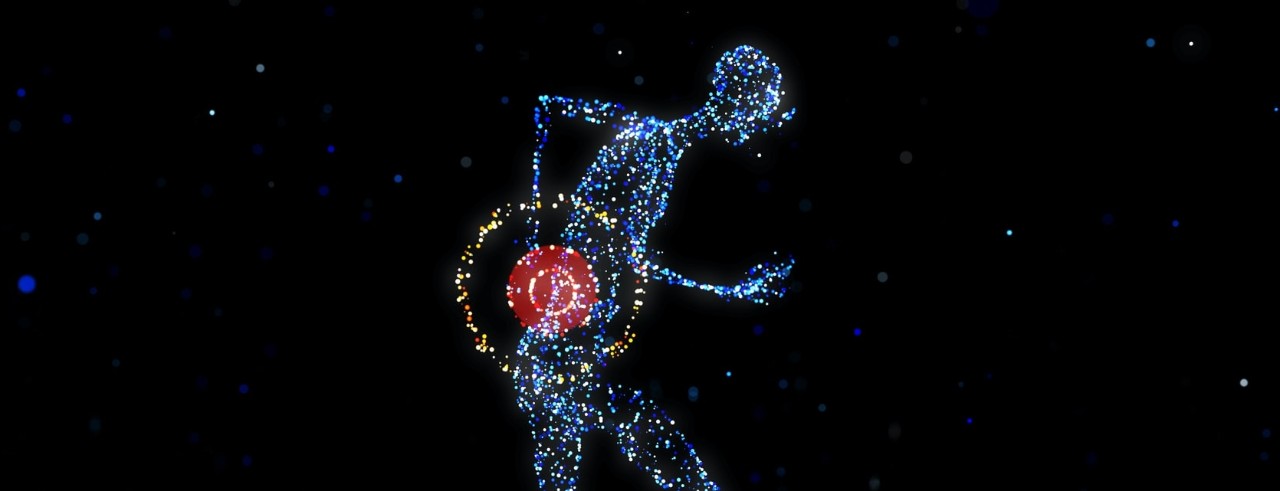
UC researchers looking for the Goldilocks of exosuits
Studies continue for best version of device that can help take strain off the back
Oh my aching back.
It’s a common complaint, and one that health officials say causes more disability around the world than any other condition.
A new device, however, the exosuit, shows promise in assisting with back and shoulder injury prevention. Still, not one of the devices manufactured to date is “just right” says Vesna Novak, PhD, an electrical engineering and computer science professor at the University of Cincinnati.
Novak’s research team studies exosuits, a wearable mobile machine that allows for limb movement with increased strength and endurance.

Vesna Novak, PhD, leads a research team that studies the performance of exosuits. Photo provided/Novak.
“Nothing has been perfected so we are trying to figure out what works and what doesn’t so we can zero in,” Novak says of the team’s latest research published in the journal Applied Ergonomics. The demand for exosuits is highest among industries where employees do a lot of heavy, repetitive lifting such as in warehouse work, construction work and the airline industry. Exosuits are a less expensive, less cumbersome version of an exoskeleton, which is primarily used in the medical field.
“Back support exosuits can support workers in physically demanding jobs by reducing muscle load, which could reduce risk of work-related musculoskeletal disorders,” she says.
For this study, funded by the National Science Foundation, Novak says they looked at the commercially available Auxivo LiftSuit 1.1 and found both pros and cons.
Auxivo LiftSuit manufacturer has already made a new version of the suit that they say addresses these issues.
Vesna Novak UC professor of electrical engineering and computer science
“Its main weakness is that it's kind of rigid and uncomfortable, so it's good for short-term but not medium-term wear,” says the study’s lead author Maja Gorsic, a postdoctoral researcher under Novak’s tutelage.
Although study participants found the tasks mildly to moderately easier to perform with the exosuit than without it, “the LiftSuit does not appear to be flexible enough: as it is very stiff around the low back and hips, squatting motions are uncomfortable for wearers,” says Gorsic.
Thus, Novak says, wearers are more likely to lift with their back, leaning their hips back into the exosuit which defeats the purpose. The team compared/contrasted this device with their prior study of the HeroWear Apex suit, which did not appear to have these same issues, but was lacking in other areas.
“Both of the suits had limitations and the Auxivo LiftSuit manufacturer has already made a new version of the suit that they say addresses these issues,” says Novak.
Having academic researchers independently evaluate commercial exoskeletons is common practice, says Novak.
Featured photo at top courtesy of Unsplash/Tromeur.
Impact Lives Here
The University of Cincinnati is leading public urban universities into a new era of innovation and impact. Our faculty, staff and students are saving lives, changing outcomes and bending the future in our city's direction. Next Lives Here.
Related Stories
Before the medals: The science behind training for freezing mountain air
February 19, 2026
From freezing temperatures to thin mountain air, University of Cincinnati exercise physiologist Christopher Kotarsky, PhD, explained how cold and altitude impact Olympic performance in a recent WLWT-TV/Ch. 5 news report.
Discovery Amplified expands research, teaching support across A&S
February 19, 2026
The College of Arts & Sciences is investing in a bold new vision for research, teaching and creative activity through Discovery Amplified. This initiative was launched through the Dean’s Office in August 2024, and is expanding its role as a central hub for scholarly activity and research support within the Arts & Sciences (A&S) community. Designed to serve faculty, students, and staff, the initiative aims to strengthen research productivity, foster collaboration, and enhance teaching innovation. Discovery Amplified was created to help scholars define and pursue academic goals while increasing the reach and impact of A&S research and training programs locally and globally. The unit provides tailored guidance, connects collaborators, and supports strategic partnerships that promote innovation across disciplines.
Blood Cancer Healing Center realizes vision of comprehensive care
February 19, 2026
With the opening of research laboratories and the UC Osher Wellness Suite and Learning Kitchen, the University of Cincinnati Cancer Center’s Blood Cancer Healing Center has brought its full mission to life as a comprehensive blood cancer hub.


